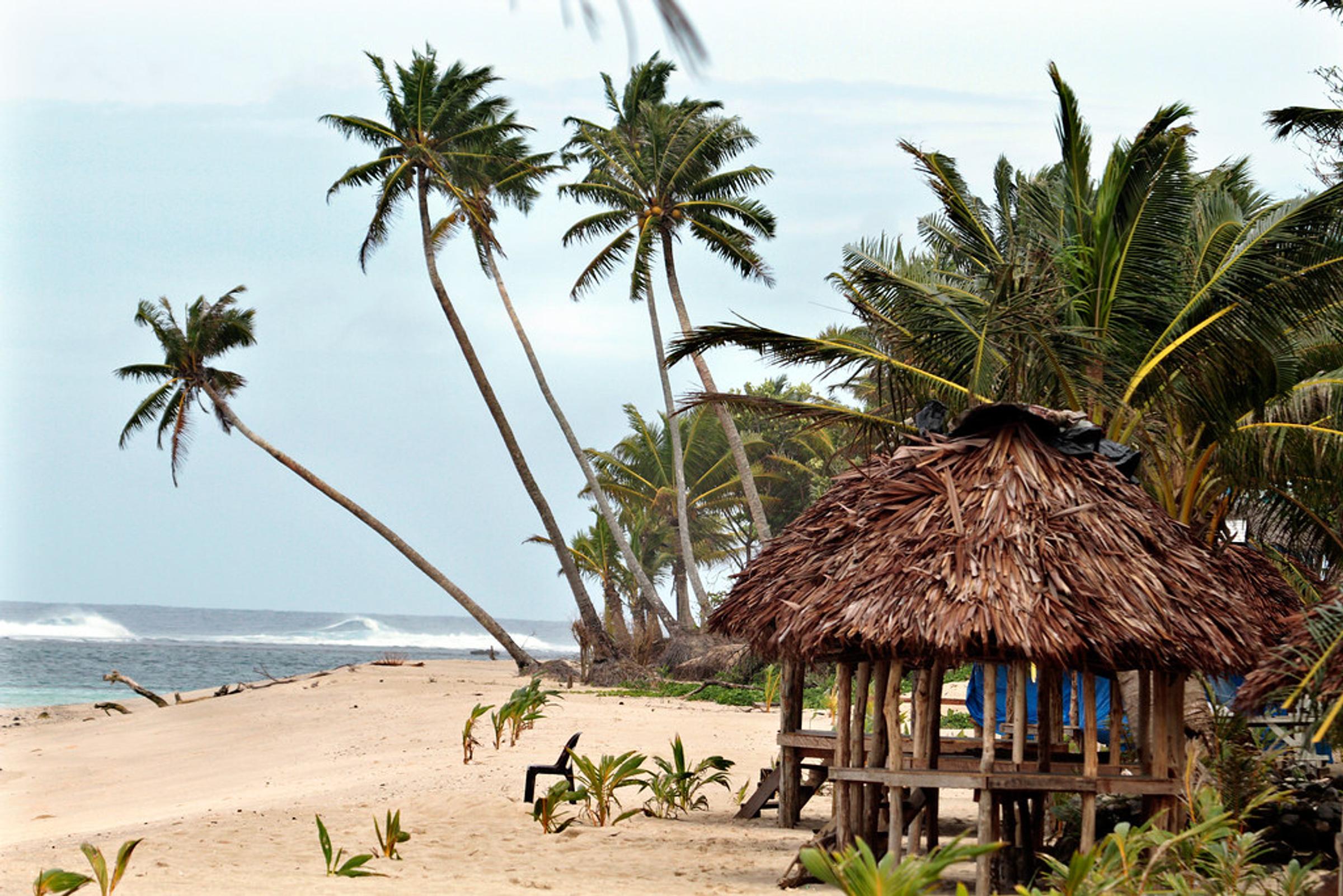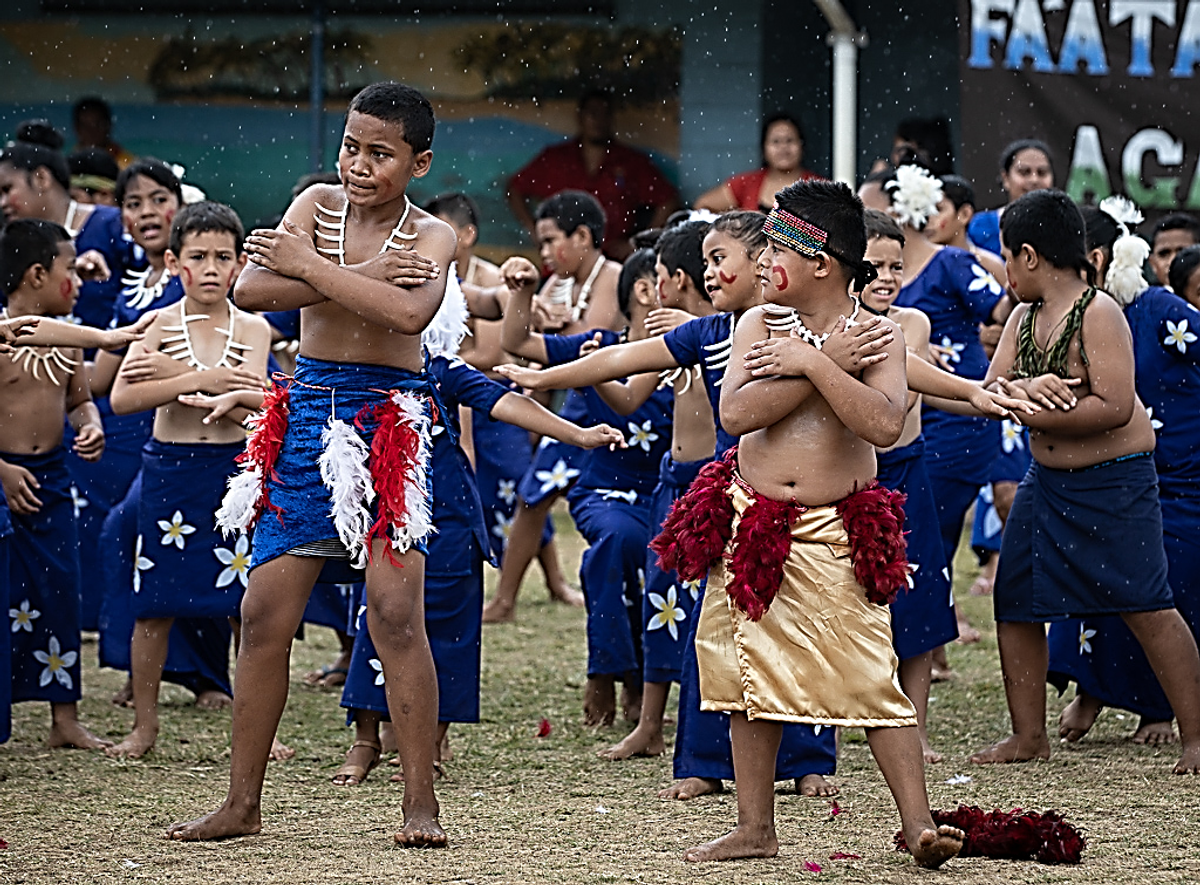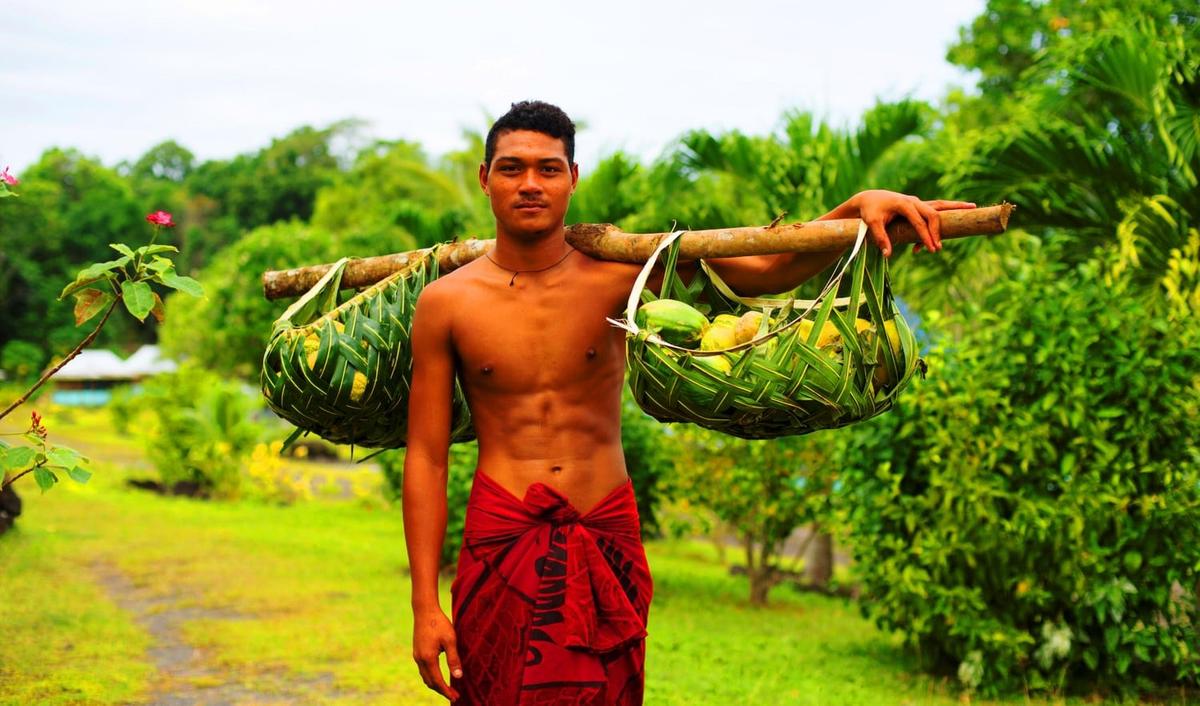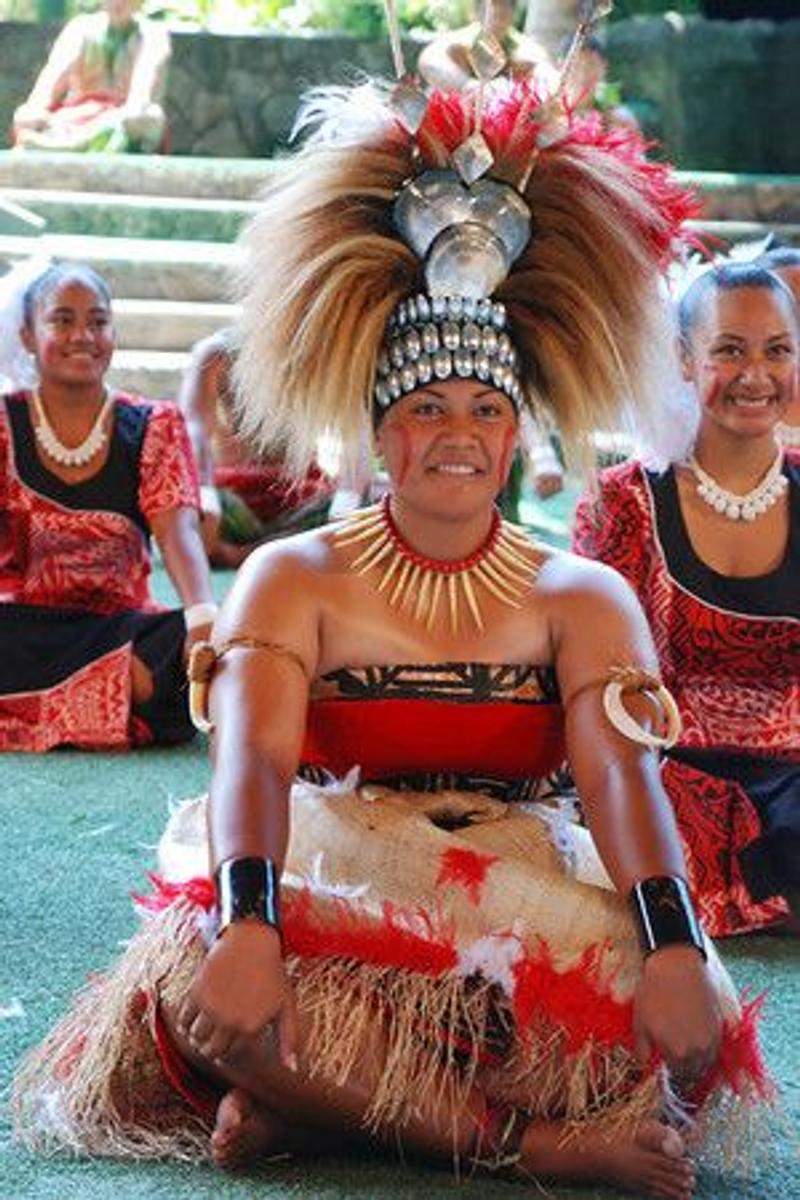Greetings
- Strangers are greeted with a handshake and a warm smile or by raising the eyebrows and smiling as a sign of acknowledgement.
- Strangers or community leaders are greeted respectfully by a title.
- If the person you are greeting has a title, such as chiefs (Matai), you would use their title regardless of the length of time you have known the person.
- Many chiefs do not advertise their status, so it is important to enquire and call them by their appropriate title.
- The typical greeting among friends and family is a hug and kiss on the cheek.
- When greeting friends and family, usually one would use their first name followed by “Talofa or Malo” (“Hello”).
Communication
Verbal
- Indirect Communication: In attempts to avoid offending others or coming across as too harsh, Samoans tend to be vague and will go around a point when conversing. However, depending on the context, they can be pointedly direct. Encouraging words such as “work on” or “try to” are often used instead of direct words such as “do not”.
- Communication Style: Samoans tend to be very polite and modest when communicating to others. They tend to try to be pleasing and will often tell you what they think you want to hear rather than directly tell you the truth. If you wish to find out something, rather than asking if you can do something (e.g. “Can I walk through the village during prayer time?”), ask if they would do the thing you are inquiring about (e.g. “Would you walk through your village during prayer time?”).
- Criticism: Direct criticism or negative comments are not often given. Rather, Samoans will phrase the matter in a gentle way and will tell the person in private.
- Oral Skills: Oral skills are highly praised and cultivated in Samoa. Samoans are often skilled in public speaking, such as oration (formal speeches or presentations). People are also often skilled in solving disputes through diplomatic means like negotiation. Oral skills are considered to be an important part of Fa’a Samoa as many tend to pass down stories and genealogies orally.
- Humour: Samoans enjoy laughing and sharing jokes with one another. Typical humour in Samoa is light-hearted and people will often make fun of themselves. For some, there is a belief that one should be able to laugh at themselves before they can laugh at others.
- Respectful Speech: Also known as ‘Gagana Fa’aaloalo’, respectful speech refers to the various terms and vocabulary used when one is speaking respectfully to someone of high social status. There are some words that have similar meanings to ordinary words while also conveying respect. Most typically, these terms are used when talking to different types of Matai.
Non-Verbal
- Physical Contact: The amount of touching that is appropriate during conversations depends on the relationship. Public displays of affection between genders, such as kissing and hugging, are generally regarded as inappropriate. Generally, Samoans are modest and will limit the amount of physical contact. Touching among friends and family, such as a light slap on the arm, is more common.
- Personal Space: Samoans tend to leave an arm’s length of personal space when interacting with others. Many believe it is impolite to walk in front of or invade someone’s personal space.
- Eye Contact: Holding prolonged, direct eye contact is not very common during conversations. When eye contact is made, it is usually fleeting (e.g. making eye contact then looking off to the side). When conversing with someone of higher status, people will avert their gaze out of respect. For example, a Samoan youth may not look directly in the eyes of someone older as it may be interpreted as challenging their elder.
- Pointing: Pointing with the index finger is considered rude. Most Samoans will point to something by gesturing in its direction with their chin.
- Raising Eyebrows: A raised eyebrow can have different meanings depending on the context. For example, it may mean that you do not believe the other person, that you agree with them or that you give your approval.
- Hand Gestures: Hand gestures or movements with the hands are used often and dramatically during oral speeches and in general conversations.
Do's and Don'ts
Do’s
- Show genuine interest in Fa’a Samoa (‘the Samoan Way’). Samoans are extremely proud of Fa’a Samoa and enjoy explaining its various facets.
- Oral presentation skills are highly valued by many Samoan people. If you are asked to speak at a Samoan community meeting or event, ensure that you are well prepared and that cultural protocols are observed.
- Take care when offering compliments to your Samoan counterpart. They may feel obliged to give you the object you are appreciating. There is a Samoan proverb, which indicates that a person offers compliments because they want the object (“o isi e momo’o” translates as “to praise is to beg”). For example, if you were to compliment a Samoan on their bag, they may try to give you the bag.
- Be patient and accept the slower pace of ‘Samoan time’. Samoans tend to find it easier to be kept waiting and are generally not bothered about punctuality
Don’ts
- Never speak ill about a person’s family without them being present or spread gossip. Samoans believe this to be deeply disrespectful.
- Do not disrespect or go against the word of a Matai (chief). Many Samoans bestow a high amount of respect on a Matai. For many, the chief is the final arbiter on important matters.
- Avoid losing your temper in public or raising your voice if you get emotional. It is uncommon for people to overtly express their emotions in front of strangers.
Presentation and preparation by:
Multicultural Liaison Officer - Hussam Saraf
Cultural Review by:
Multicultural Liaison Officer
Deborah Fili










